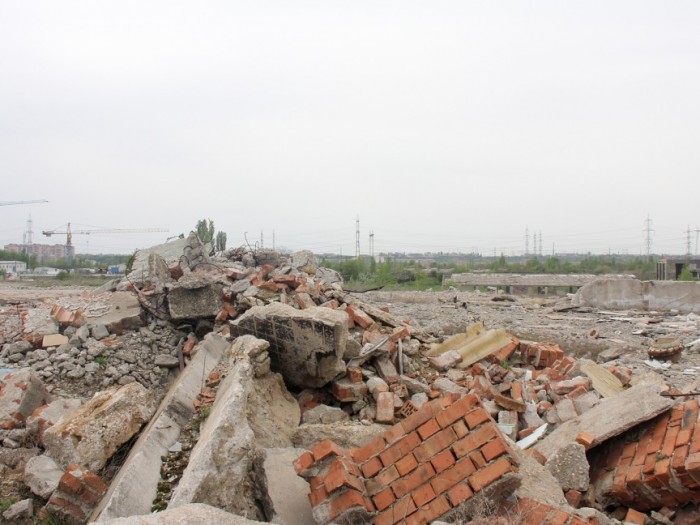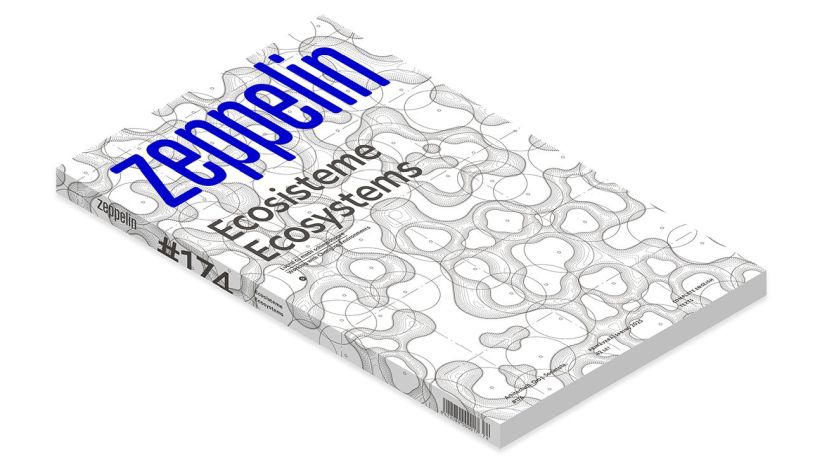Text & photo: Mugur Grosu
I am one of those people who, although having lived here for so many years, never feels quite at home. Whenever I meet people like me, we joke saying we’re Constanța’s diaspora in Bucharest. It’s like in our veins flows a fundamentally different thing — a morose cocktail pounding adversely, in which the sickness of the golden fleece seekers collides with acute sense of exile, left by the shadow of Ovid at Tomis—which has remained, basically, the same barbaric land.
We are Gellu Naum’s penguins—in the circus on Calea Moșilor we long for the frozen Labrador, and the other way round.
On the other hand, the capital city has always given me the feeling of a huge waiting room of a transit railway station, with all its melange of creatures put together by sheer chance: look at the one buried in knapsacks and bags, you never know if he’s coming or going, forgotten here by fate; look, there’s one sleeping lightly with his head on a valuable bag; look at the one dressed in festive clothes, indifferent to this ridiculous mundane framework, for he started the journey of his life; there’s the beggar; there’s the guitar player; there’s the peddler; here is one that flees, dragging after him the invisible cannonball of a terrible sin; there’s the immortal one, surrounded by an aseptic bubble, anxious to be back in the stratosphere where he came from; there’s the prey, and, lo and behold, the hunters; and here are those who are simply killing time. They are many. They re open, but opaque, like fake doors and windows on some false facades that lead nowhere. If you have the madness to open them and step beyond, you will wake up in an open field. In the wilderness. Do not comment. Let yourself be amused, at most. It is none of your business. And then, if you look really well in the dirty mirror in the toilet, where you hardly dare to moisten your fingertips to freshen your face, you will recognize in your own eyes the same windows and doors that really invite you to enter. No, not even you. And you realize that only in the next station, in Budapest. How did you get here? Jumping on the first train that finally led somewhere else. What did you do that for? Desolate answer for a desolate question. Here you are. Here is the prey, here are the hunters. Here is the peddler, behold the immortal, here is the well dressed one, here are lovers of euphoric nothingness, look, the one who flees, here’s the one who forgot to wake up, here is the guitar player and here are the deaf. They’re all here. And they all are a single, self‑consuming and insatiable creature: yourself. But today you will not talk to anyone, you will not sing, you will not beg, you will not sell, you will not eat, you will not prey, you will not hope, you will not wait, you will not fall asleep and you will not kill time. What is left to do? To walk. Step by step, without counting, just as you used to build, brick by brick, the temple of euphoric nothingness that crumbled down at every dawn and you would just start it over and over again. You have amassed, perhaps, tens of kilometers in Budapest, gathered in a bottomless pit. As if in a dance marathon with the scent of a seductive woman who will never know your name. Until all your tired bones will yell “get back home”. Home. Here’s something new. Come back! Not to sleep, to eat, to sing, to sell or to buy, to beg or to conquer, and in no way to kill your time. Go back and look in the mirror in which you lost your eyes.
I spent almost half my life here, and still have not learned what “home” means. I know what I never wanted it to be: a tomb or a bedroom, a waiting room, a train station. I practiced all the variations that have been at hand: I haunted, I sang and slept on the streets, with the rockers in Piața Romană, I crossed some dormitories and barracks, I squeezed through basements with rats and attics wide as an elevator, from which I fled when I could not pay the rent, I danced naked in the rain, while soaping, while hollering, watching the cross of the Armenian Church, because the rain was my only source of water, I was in seventh heaven when I was able to rent my first studio, followed by many others, including one in the largest bloc in the country, which gathers in its entrails the number of inhabitants of a large village, I also knew life in two room appartments, in the city center and as far as Titan, and for a while I’ve been hardly fitting in three rooms. And I live within walking distance from the Armenian church, as if a bizarre gear would wind me up here again and again, to lift up my eyes to its spires and see again the man who had once danced on the terrace across the street and soaped up under God’s good rain. Not the terrace, not the steeples, not the good Lord are what I could call home. And probably not the rain either. But I loved the hell out of everything, as I love—without any good reason—all this huge waiting room which is the capital. Although it sounds corny and absurd, like a blind love that will never be answered. And maybe precisely this amount of emotions — corny, absurd—means home. If the rent is too high, start packing. The rest will never change.


